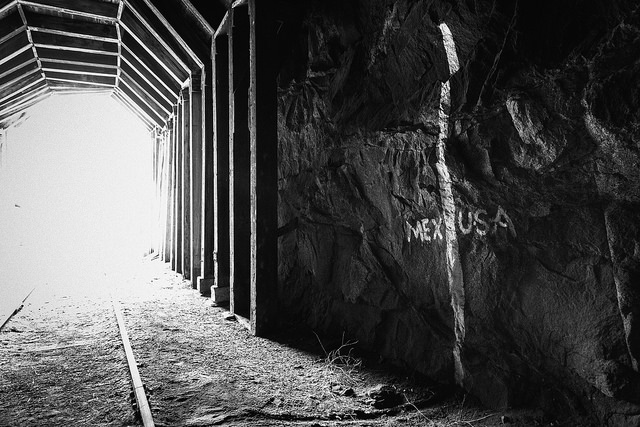
The Beat
OECD anti-bribery meeting held in Paris
The Organisation for Economic Cooperation and Development held an Anti-Bribery Ministerial Meeting in Paris on 16 March. The OECD released a short paper to mark the occasion, ‘Fighting the Crime of Foreign Bribery’ and published the meeting’s discussion papers on empowering whistle-blowers, international cooperation in combating foreign bribery and frameworks for anti-bribery compliance.
The origins of organised crime in Venezuela
This week, Insight Crime published a two-part article looking at the origins of organised crime in Venezuela. The article provides an interesting look at how organised crime developed to become ingrained in Venezuelan society. Part one outlines the early origins of organised crime in the South American country, and part two provides a more recent overview.
Report: fraud in the Commonwealth
On the home front, the Australian Institute of Criminology recently published a research paper examining fraud in the Commonwealth. The report offers a census of the most costly fraud incidents from 2010–11 and 2012–13 to give an insight into the nature of internal Commonwealth government fraud.
CT Scan
Australians among recruits in leaked ISIS documents
At least two Australians have been identified amongst 22,000 Daesh recruitment files announced German authorities on March 10. While German Federal Police would not disclose how they obtained the files, Police spokesperson Markus Koths confirmed their authenticity. Using pseudonyms, the first man identified is 25 year old Abu Mounzir al-Lubnani, a construction worker who also studied to be a pilot. The second is 36 year old Abu Ubaida al-Lubnani, a computer engineer and human resources specialist, who’d previously been arrested in Australia on terrorism-related offences. According to the leak, both men are of Australian-Lebanese origin and entered Syria via the Kalas refugee camp on the Turkish-Syrian border in 2013. For more coverage read here and here.
US–Syria strategy comprehensive
The Institute of War has just released a detailed report series on US Grand Strategy for destroying ISIS and al-Qaeda. Report one—‘Al Qaeda and ISIS: Existential Threats to the U.S. and Europe’—outlines US strategic objectives in response to the threat from the two terrorist organisations. Report two—‘Competing Visions for Syria and Iraq: The Myth of an Anti-ISIS Grand Coalition’—defines US strategic objectives in Iraq and Syria against the interests of key players Russia, Iran, Turkey and Saudi Arabia. Report three—‘Jabhat al Nusra and ISIS: Sources of Strength’ –examines the threat of ISIS and Jabhat al Nusra and key tactics for the US to defeat them. These reports come at a pivotal time given last weekend’s announcement of Russia’s withdrawal from Syria.
Checkpoint
What do the Brexit and Shakespeare have in common? Apparently the Refugee Crisis
Sir Ian McKellen recently performed a monologue to British audiences from a little known Elizabethan play—considered to be written in part by Shakespeare himself—which rebukes a xenophobic London crowd for rejecting refugees. The monologue comes at a time when concerns about border management if Britain leaves the EU are running high. France’s Finance Minister, Emmanuel Macron, recently said that the ‘Treaty of Le Touquet’—the implementation of frontier controls at sea ports of both countries on the Channel and North Sea—would be in jeopardised and potentially ripped apart should the Brexit come to pass. If Europe’s broader migration crisis isn’t brought under control, there are fears that the EU might collapse.
Elections, Mexicans and Border Metrics
The US Department of Homeland Security recently released statistics which indicate that the US–Mexico border is more secure than ever. The border has been a hot topic in the 2016 US Presidential campaign, with Presidential hopeful Donald Trump infamously announcing that should he become President, he would demand that Mexico pay for the construction of a wall along the 3,200 km border to mitigate illegal immigration. The National Geographic sent a photographer out to capture what the current border looks like and the Migration Policy Institute has taken the issue to task with an in-depth report.
First Responder
Australia needs smart infrastructure task force
Smart ICT systems are critical to Australia’s economy, according to a new report released this week. The report—tabled by the House of Representatives Standing Committee on Infrastructure, Transport and Cities—found the benefits of new technologies would enable smart cities, increase productivity, improve communications and better prepare the country for natural disasters. The Committee recommended a Smart Infrastructure Task Force, to be led by Infrastructure Australia, be established to oversee the development of infrastructure and national policy on IT, similar to the UK BIM Task Group. The role of ICT in building smart and sustainable cities has come into focus in recent years, with the UN’s International Telecommunication Union releasing a report in 2014.
Millions at risk from sea level rise
More than 13 million people living in coastal communities in the US could have their lives disrupted by rising sea levels by 2100, a new study has claimed. The paper, published in Nature Climate Change on 14 March, collated future population estimates with predicted sea-level rise to argue that current projections regarding the impacts of increased sea levels on coastal areas underestimated future population growth. The US Environmental Protection Agency takes a look at the impact of climate change on coastal areas here.

